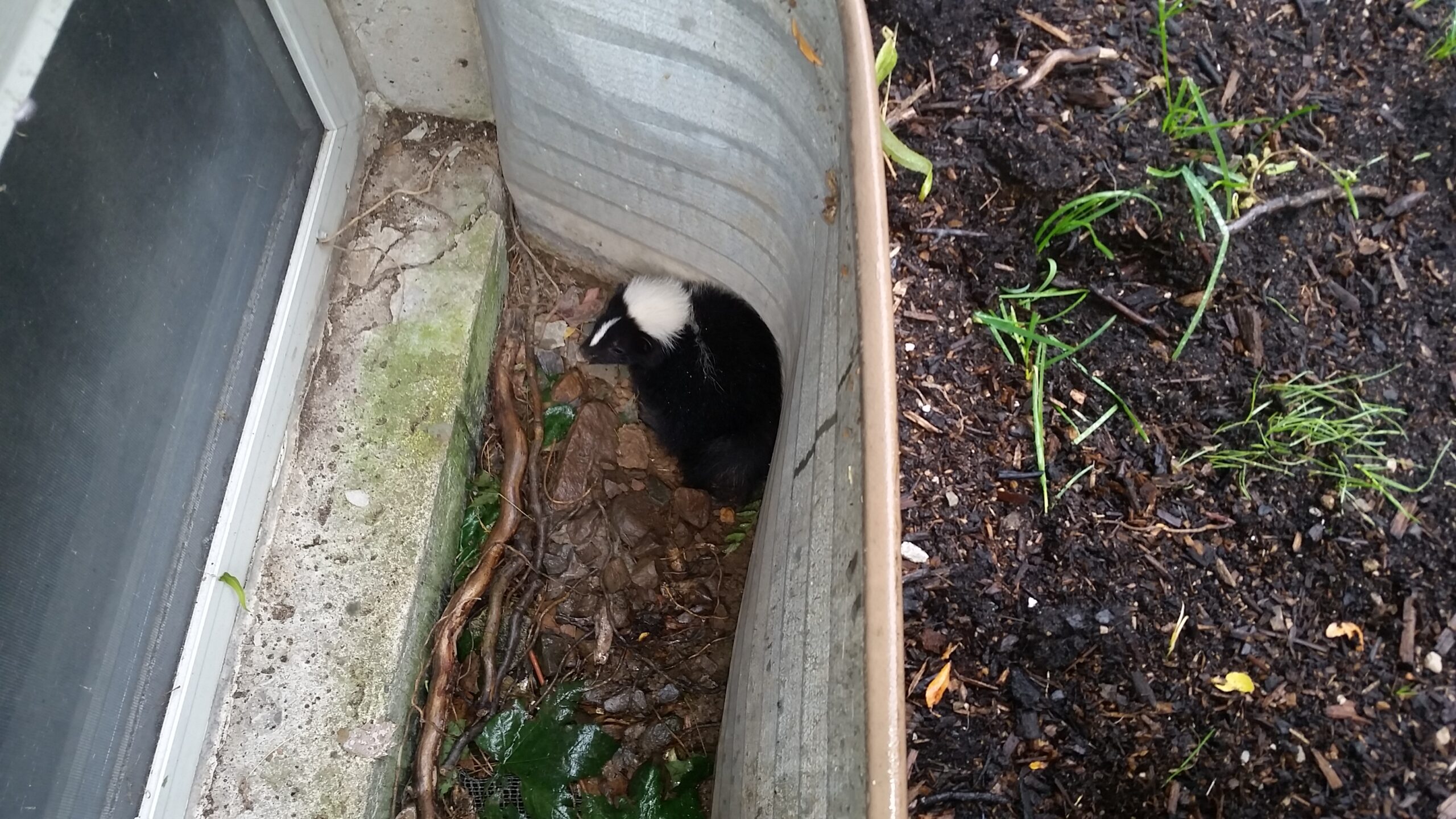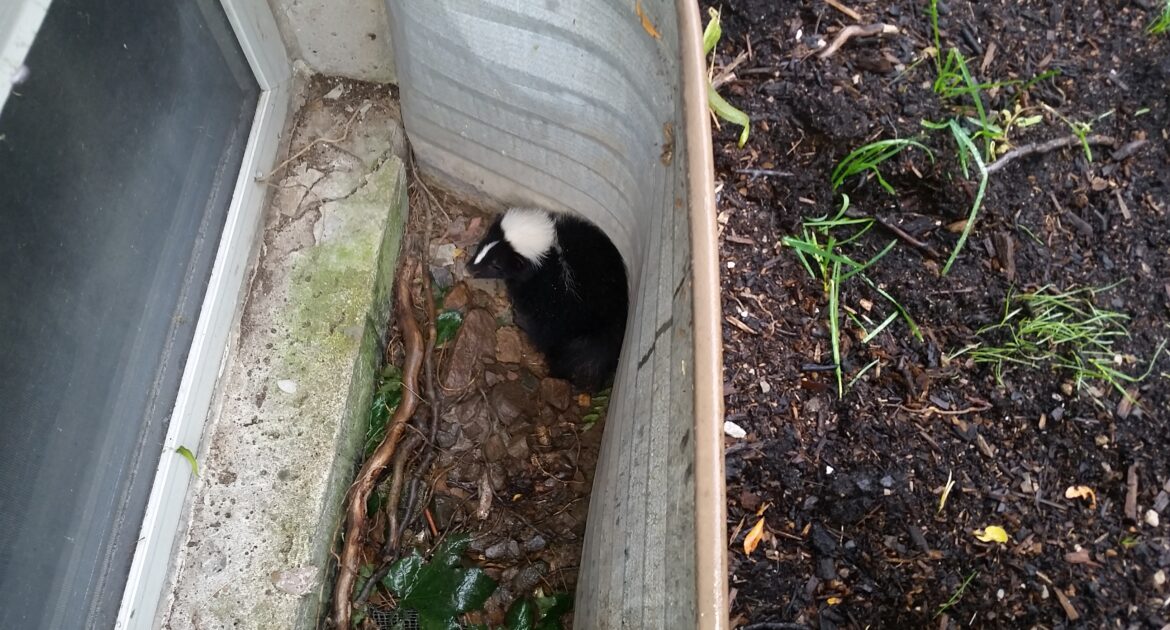Skunks get a bad rep because of the bad smell they emit. Despite this noxious scent, skunks are gentle creatures that don’t spray unless they feel threatened. If you discover that one has made a den on your property, it is best to contact professionals for wildlife control in Richmond Hill.
Clearing up Misunderstandings That Humans Have About Skunks
Though skunk spray smells bad, it is rarely dangerous unless the target is exposed to high concentrations, swallows it or gets it in the eyes. That isn’t to say that the chemicals don’t cause discomfort. Direct contact with the spray can lead to sneezing, nausea, vomiting and temporary blindness. These effects occur more frequently in pets because they are more inclined to get hit in the face at close range.
This striped critter is not aggressive unless it is threatened. Usually, they are quite shy and do everything they can to avoid confrontation. A skunk only sprays as a last resort or if there is just cause — such as a mama defending her little ones. Their oily discharge is their primary defence mechanism, but they have to be judicious in using it. If the animal fully discharges its spray, it takes 10 days to replenish.
Looking for Signs That Things Could Get a Little Stinky
While you don’t want skunks making a buffet out of your garden, they also eat insects, grubs and other critters that can damage your yard. They provide a benefit to our ecosystems and serve important roles in nature. They aren’t so good as house guests. Skunks are nocturnal animals, so you don’t often see them out and about unless you spend time outdoors after dusk. Still, you can keep an eye out for signs that a skunk has set up a house on your property. Look (or smell) for these indications that you have a stripey house guest:
- Skunks often build dens under decks, porches or buildings. If you smell a musky odour that isn’t as strong as the spray in the vicinity of an ideal denning spot, you probably have a skunk in residence.
- You can identify a den by looking for a smooth patch of dirt, sometimes with branches, grasses and other debris piled up to cover the opening.
- Look out for droppings and alternating five-clawed footprints.
- Skunks often dig for their sustenance in yards, leaving behind small, shallow holes.
If you discover any of these signs, steer clear and contact Skedaddle for humane skunk removal.
Taking Care That No One Gets Hurt or Sprayed
Though skunks are not aggressive, you don’t want to approach one. When they are frightened or feel threatened, they will not hesitate to use their spray. They have a great aim, too, so don’t count on being able to dodge the liquid bullet. Skunks are usually gracious enough to offer a warning before they discharge. They’ll stomp their feet, raise their tails and stand on their hind legs. If you see these signs, don’t make any quick moves. Instead, back away slowly and calmly. Don’t wait around to see if it points both head and tail in your direction because that’s when it’s getting ready to fire.
A fair warning about the cute little ones: don’t approach these critters either. Mom is usually nearby and will not take kindly to someone getting too close to their kits. The youngsters also have full spraying capabilities by the time they are two weeks old. If you have a pet, take it for a walk before it gets dark outside and keep it on a leash. When nighttime walks are necessary, stick to a well-lit path, as skunks avoid lighted areas.
Getting Help With Wildlife Control in Richmond Hill
Skedaddle Humane Wildlife Control’s technicians are experts in humane skunk removal. Our technicians understand skunk behaviour and biology and can take care of a resident skunk without harming humans or animals. Contact us today if you need help evicting an unwanted house guest.




